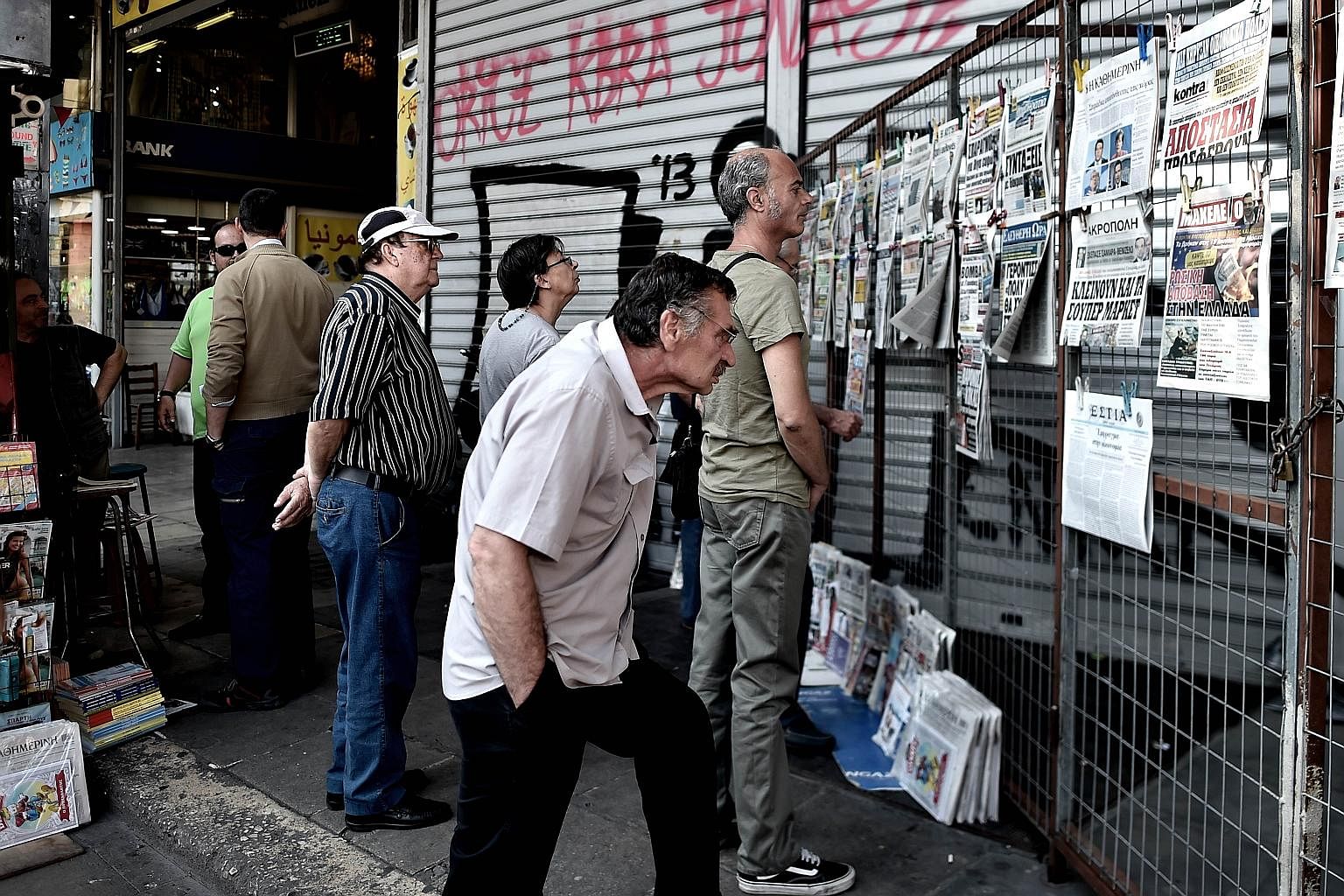The Greek financial crisis and its broader implications have become stark as Greek Prime Minister Alexis Tsipras announced the indebted country would not repay a €1.6 billion (S$2.4 billion) loan to the International Monetary Fund, due Wednesday.
By calling on the Greek people to vote "no" in a referendum this Sunday on implementing austerity measures creditors want, Mr Tsipras is hoping that the Greek population will send a clear message to Europe that they will not be held hostage to creditors. But Greece's departure from the euro zone could be looming.
The aim then would be to stand even firmer in the negotiations. From the European bankers' perspective, a resounding "yes" vote in favour of the "bailout" package will mean that they will be able to place even stronger demands on Greece.

Between these two positions is the "average" Greek.
But who exactly is that? In my recent visit to both the Greek mainland and islands, the attitudes could not be more contrasting.
On one of the smaller and remote islands, the "crisis" barely rated a mention. Yes, there was awareness, but of greater priority was the olives to be picked and the goats to be milked. There was doubt that tourism would stop, but, then, there was doubt that the politicians would let it get to crisis point.
On Crete, the contrast was starker. In the historical Venetian town of Chania (Xavia), there was barely an empty seat in the hundreds of restaurants and bars. From mid-afternoon to the 3am close, the main strip along the harbour hummed with people and the discussions of the crisis barely rated a mention. Tourists shopped and Greeks served.
Two kilometres into the contemporary part of the city, the situation was very different. Shops were boarded up and the uncertainty was evident. According to Eurostat, Greece's unemployment rate is 25 per cent, with the youth unemployment rate close to 50 per cent.
Athens is another story altogether: Tourism is down and the discussion never strays far from the crisis. Opinions of the Syriza ruling party are split and passionately divided - but one thing that everyone agrees on is that Germany owes Greece billions of euros for reparations from World War II.
Despite this agreement, it is obvious that Greek society is beginning to fray as the neo-Nazi Golden Dawn party continues to garner support and clashes both with leftists, anarchists and immigrants.
•The writer is Professor in Cultural and Social Analysis at the University of Western Sydney, Australia.
•This article first appeared in theconversation.com, an Australia-based website of analysis from academics and researchers.
